What is depression and how to deal with it?

From time to time, each person experiences depression, loss of strength and a decrease in the general mood. The joys of life begin to bypass him. Violation of the emotional and physiological spheres leads a person to depression.
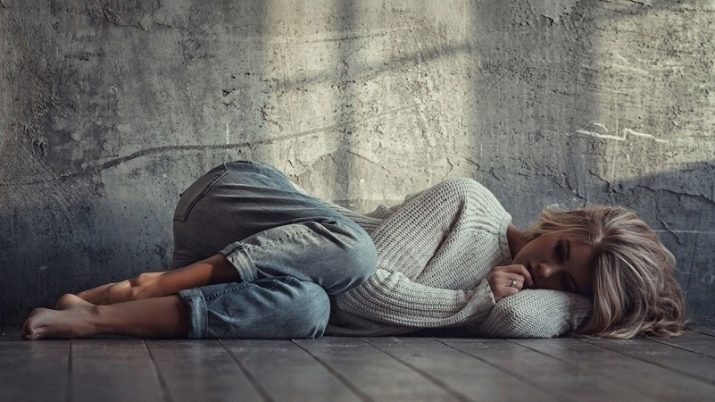
What it is?
In psychology, there is the following definition of the concept of "depression": depressive disorder is a suppressed emotional state of the personality associated with motivational changes, cognitive dissonance and apathy. Depression is often experienced by people who have suffered a traumatic situation for the soul.
In the modern world, about 400 million people suffer from this disease. We are talking about patients who have turned to specialists for help. The actual figure is much higher than the statistics. Depression manifests itself not only in the form of emotional experiences, but also on the physical level. Sometimes psychosomatics comes to the fore. The therapist may not always be able to recognize depressive syndrome due to the presence of bodily ailments, because the patient's description of the symptoms coincides with other diseases.
Being depressed has a negative impact on life. The man looks depressed. In his head, gloomy thoughts are constantly present, preventing him from fully doing his daily activities.
Productivity performance decreases markedly. The person feels a sense of guilt, complete helplessness and uselessness.

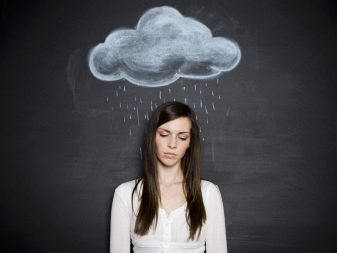
Short story
The depressive state of the personality has been known since the era of Antiquity. The description of the disease is found in many works of famous doctors of different times. Hippocrates recommended that his patients, who are in melancholy (depression), do cleansing enemas, take warm baths, use opium tincture, drink mineral water from the springs of Crete, do massage and have fun. It was he who noticed that the psychological state of a person is reflected by weather changes and seasonality.
At the turn of the 19th and 20th centuries, the German psychiatrist Emil Kraepelin devoted part of his scientific works to the description of manic-depressive psychosis. Currently, this term is most often replaced by the phrase "depressive episode". Manic-depressive psychosis in modern specialists is associated with bipolar disorder and neurotic depression. These concepts are not always associated with people with mental disabilities.

The main signs
Depression can be recognized by a number of characteristic features. The subject ceases to receive joy and pleasure from the beloved activity. He has no interest in anything. The patient abandons his hobbies. A person is not happy with communication with others. He closes in. Social rejection arises. The person loses interest in the opposite sex.
The first signs that signal the onset of an illness are a low mood for several days and pessimistic reflections about present and future events. A person appears distracted, appetite and sleep are disturbed. These factors have unpleasant health consequences. Many depressed individuals completely lose their appetite. Others, on the contrary, desire a lot and often eat. As a result, some people rapidly lose weight, while others quickly gain extra pounds.
Often the patient is influenced by external circumstances. They provoke a decrease in the level of patience, which leads to an irritable state. Irritability is expressed in aggressive manifestations. A person can get angry about any little thing. Psychomotor skills are greatly reduced or, conversely, significantly increased. When it decreases, a person's movements and speech slow down.
Psychomotor agitation manifests itself in continuous walking from side to side. He cannot find a place for himself with the slightest excitement.

Depression can be defined by lethargy, motor inhibition, depression. A person does not want to do anything. He has no strength and energy. The individual feels weakness, heaviness in the muscles and throughout the body. The result is rapid fatigue, fatigue and lack of desire for physical activity. Against the background of internal emptiness and emotional exhaustion, headaches and dizziness are observed.
Depression sometimes leads to impaired mental abilities, decreased concentration and memory. You can learn about the disease by being depressed, apathy, loss of the ability to empathize and empathize. An abundance of gloomy thoughts often leads a person to think about death and suicide. Alcohol and drugs can cause negative reasoning and reckless actions. Passion for gambling or extreme sports sometimes also affects the psyche.
Depression can be detected by the manifestation of growing self-loathing. A person is haunted by the thought that the world around him is crumbling, and it is impossible to rectify the situation. He himself is the fault of all troubles and mistakes.
Excessive feelings of guilt provoke feelings of hopelessness, helplessness, and worthlessness. The person is seized by a pessimistic mood. Motivation disappears.

Causes of occurrence
An important role in the onset of a depressive state is played by biological factors, hereditary predisposition, causes of a psychological nature and the influence of ecology. Emotional and physical distress can develop at any age. Depression in children is often the result of trauma. In adolescence, hormonal changes occur, a rethinking of their role in society. These factors can trigger mood disorders. For teenagers aged 16-18, depression usually appears from idleness. And it also occurs as a result of the abuse of tobacco smoking, alcoholic beverages and drugs.
The midlife crisis is reflected in the personality of 30-40-year-old people, who are beginning to have thoughts about the unattainability of many tasks, about the senselessness of the efforts being made. Difficult relationships in marriage also reduce the mood. Sometimes a person falls into a blues after the end of the vacation. He experiences stress, apathy, melancholy. I do not want to start my official duties at all. This is influenced by cardinal changes in weather conditions, daily routine and rhythm of life. Depression is often caused by the death of a loved one. The cause of a depressive disorder can be traumatic brain injury, cardiovascular, oncological and other serious diseases.
Medication side effects sometimes cause depression. Hormonal imbalance in a woman's body, problems with the thyroid gland, and a lack of vitamins also often lead a person into depression. Lack of social support may be the reason for the severe depression of mood, leading to depression.
In older people, most often, a decline in mental strength occurs against the background of health problems, loneliness and forced isolation from society. Thoughts about impending death lead them to the feeling of their uselessness and hopelessness.

Species overview
There are different types of depression. In some it can be observed in the morning, in others in the evenings, while others experience it around the clock. Morning depression appears due to problems associated with early awakening. Some at this time of the day feel a sluggish thought process. The depression gradually disappears or decreases towards noon. Evening depression often against the background of causeless sadness or despondency before bedtime. By the evening, a person's mood deteriorates greatly. For this reason, he suffers from insomnia.
In some cases, depression may not last long. For example, post-vacation depression occurs upon returning from warm regions, when, immediately after an abundance of sunlight, the subject has to plunge into gray everyday life, accompanied by rain and slush. After immersion in everyday affairs, a person quickly regains its former shape. Sometimes traumatic situations are periodically repeated. Obsessive memories of them provoke generation post-traumatic depression... It can also arise after a single incident caused by natural disasters or man-made disasters.
This type of depression sometimes lasts for many years. Experts describe other types of depressive conditions.
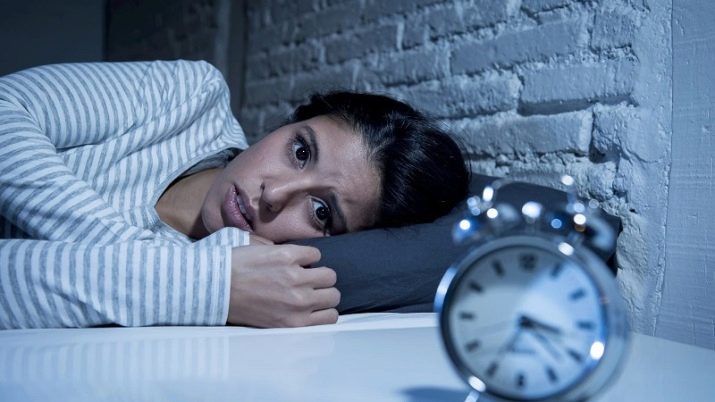
Extensive
This type of depressive disorder is a complex of symptoms. A person constantly feels the futility of his own existence, hopelessness. His thought processes slow down, somatic disorders are observed, the emotional and volitional sphere suffers, self-esteem is greatly reduced.
Seasonal
In the autumn-winter period, any person is faced with a constant lack of sunlight and a sharp drop in air temperature. Subject is constantly sleepy. Some people are gaining weight. Prolonged stay in a confined space, artificial lighting, limited walks in the fresh air provoke a general breakdown and frequent mood swings.
Dysthymia
A persistent decline in a person's mood does not have a significant impact on the life of an individual. He has good control over his own thoughts and actions, is engaged in daily activities, does an excellent job with his marital and work responsibilities. Emotional and physiological devastation is usually attributed to overwork. This form of the disease often becomes chronic and persists for several years.
Atypical
This type of depressive disorder is characterized by constant irritability, a feeling of heaviness in the arms and legs, recurrent convulsive manifestations, and pain cramps. Subject is unable to control their own emotions. He often cries and is capricious. Severe mood swings, panic attacks, and anxiety attacks prevent people from leading a normal social life.
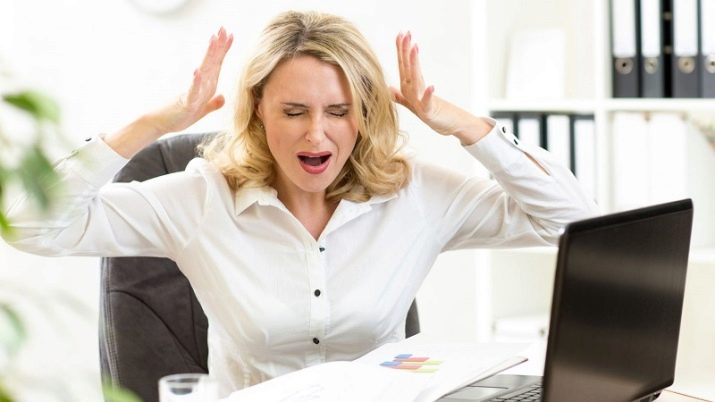
Affective insanity
Affective disorder can be of varying severity. Psychosis is characterized by alternation of depression and manias, a sharp change in mood. Excessive gaiety is suddenly replaced by incredible sadness, activity after a short period of time can sharply decrease. Then apathy again turns into hyperactivity and euphoria. But this state of excessive activity and vigor does not last long.
Situational
Any unexpected event can drive a person into depression. The situation is sometimes associated with the diagnosis of a serious illness in someone close or in the subject himself, dismissal from work, rape, parting with a loved one, divorce and other traumatic events. Situational depression is well understood by everyone. People around you usually give support to the person experiencing it.
Psychotic
Sometimes a person begins to feel an excessive sense of fear and guilt. A person has auditory and visual hallucinations, delusions. He may draw false conclusions based on his own disturbing beliefs and non-existent facts.
Motility disorders often bring a person to a temporary stupor.
Postpartum
A young mother sometimes after childbirth begins to feel strong anxiety, anxiety. She thinks that she can harm the baby. Changes in lifestyle, increased responsibility, many worries and unusual responsibilities lead the newly-made mother to mental discomfort. A woman often has emotional breakdowns. Psychological overload brings her to nervous exhaustion.

Comparison with apathy and stress
It is very important to distinguish between depression and bad mood in a timely manner. The usual blues differs from depression by the positive reaction of the individual to any joke of the interlocutor. The disease proceeds without signs of neurosis and mental disorders. A depressed person very often succumbs to an apathetic state.
The difference between depression and apathy is that a depressive state can last for a long time, and apathy is a temporary state of mind. It is not uncommon for both types of disorder to be present at the same time. Apathetic and depressive states are characterized by common characteristic signs: indifference, detachment, indifference to the surrounding reality, taciturnity, failures in the thought process, memory impairment, speech inhibition, inactivity and lack of initiative.
Apathy is characterized by the depletion of reserves of psychic energy: the extinction of any emotions, impulses, and involvement. With depression, physiological disorders are also observed. During periods of depression, a person may experience health, sleep and nutritional problems. He feels tired, depressed, helpless, hopeless. You can get rid of apathy by increasing motivation, using various types of rewards, and actively communicating with others.Depression often requires medical intervention and medication.
The main difference between depression and stress is that a stressful state in moderate doses is good for health, and a depressive disorder squeezes all the juices out of the human body, endowing it with weakness and soreness. Depression is accompanied by anxiety, loss of energy, and impaired thought processes. Stress is always a reaction of the human body to unfavorable conditions, negative emotions and overstrain. The release of adrenaline mobilizes the body, enhances mental activity to find ways out of the situation. The subject can overcome the stress on his own, and depression is usually resolved with the help of a psychologist or psychiatrist.
The process of arousal during a stressful situation passes quite quickly, and the experiences associated with depression last for a long time. This feature differs depression from stress.

Stages of development
The depression usually builds up gradually. The disease always begins with an easy stage, which people usually do not attach any importance to. They attribute the depressed state and bad mood to cloudy weather, fatigue, poor health, or a bad day. At first, the subject experiences mild discomfort, lethargy, anxiety, and mild irritability. In the evening, a person cannot fall asleep for a long time, and in the morning he is overcome by drowsiness. Then his concentration of attention worsens, alienation appears, apathy develops. This is how the body reacts to incipient depression.
The next stage is characterized by a sharp decrease in the hormone of happiness - serotonin. A person is irritable and angry because of any criticism in his address. He cannot restrain his negative emotions in front of strangers, he behaves aggressively with them. Often he offends others and makes sarcastic jokes at them. Some cannot cope with their dark thoughts and contemplate suicide. You can get out of this stage only with the help of specialists.
The final stage signals a serious mental disorder. The subject ceases to see the meaning of his existence. He is indifferent to all events that take place and to himself. He is no longer happy with his favorite things and hobbies. A person responds inadequately to the statements and actions of other people when they are inconsistent with his idea of the world around him. The individual feels constant outbursts of anger and aggression. He cannot control his own behavior. The last stage of the disease is treated for a long time and is difficult. It can take months or even years to fully recover.
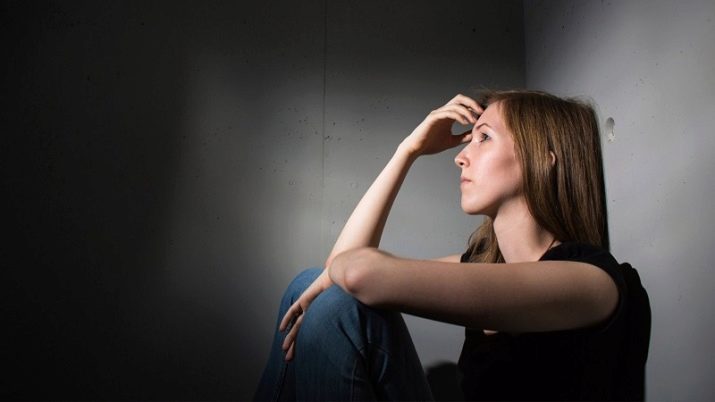
Treatment features
Sometimes, to get out of a depressive state, it is enough for a person to change the environment. Any kind of creativity is beneficial to those suffering from this ailment. Chatting with new acquaintances helps to improve your mood. If you have any symptoms of depression, you should seek the help of a psychologist or psychotherapist. After undergoing treatment, depression goes away rather quickly. It is one of the few mental illnesses that respond well to treatment. In just a few days, the patient feels a significant improvement in well-being.
Family or group psychotherapy works well for a person. Groups are formed according to the similarity of symptoms in the subjects. Family psychotherapy is aimed at treating couples who need to stabilize relationships that are on the verge of collapse due to signs of depression in one of the spouses.
A severe form of the disease requires medication. Medication is prescribed by a psychotherapist or psychiatrist. Most often, the condition stabilizes within 2 weeks.Some patients are recommended to take antidepressants for at least 3 months to achieve the maximum effect of treatment.
Electroconvulsive therapy is used to treat major and psychotic depression. It stimulates the brain with electromagnetic beams. The patient is under anesthesia at this time. Short-term side effects are possible in the form of partial memory loss, confusion and disorientation. These effects go away quickly, although some have been observed for more than two months.

Effects
Long-term presence of a person in a depressed state contributes to the development of various diseases, the creation of conflict situations in society. Subject's panic attacks and feelings of anxiety increase, and isolation from society occurs. Some have problems with work or study.
Depression is especially dangerous because it leads to harm to their own health, the emergence of suicidal thoughts and suicide attempts. A depressed person sees the only solution to all problems in his own death. Personal suffering, disappointment in life, loss of the meaning of existence, seeming hopelessness and hopelessness lead to this thought.
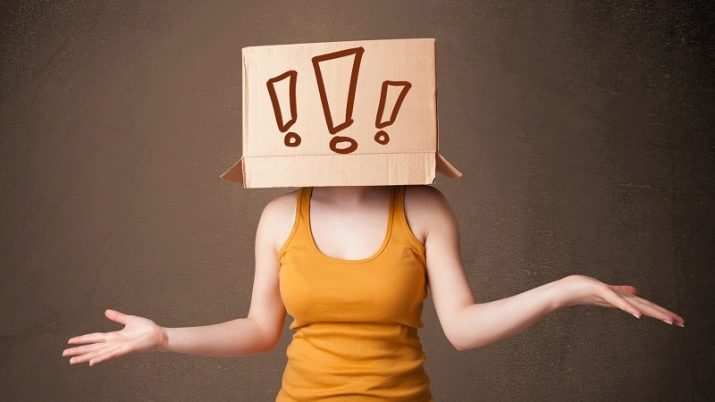
Prophylaxis
It is very important to prevent the onset of depression. Physical activity has a beneficial effect on the psychological state of the individual. They improve overall well-being and improve mood. You should not go over all your problems and troubles in your head. If there is no way to change circumstances, then you need to change your attitude towards them.
Walking in the fresh air every day helps to restore the nervous system. Normalizing sleep, having the right daily routine, and well-prioritized priorities can reduce anxiety and improve your overall mood. From time to time it is worth getting out into nature. Anyone alone with trees, meadow flowers and birds calms down. The rustle of leaves, the murmur of streams, the singing of birds, fragrant aromas have a beneficial effect on the psyche of the individual.
Meditation is an effective way to treat depression. With its help, you can achieve complete relaxation and achieve inner peace. A person's sleep is normalized, mental activity improves, and the level of anxiety decreases.
A person should always set only realistic goals for himself. Tasks that are very difficult or impossible to complete have a negative impact on the human psyche. Achieving the desired result brings joy, and the collapse of hopes for achieving the goal leads to depression.









